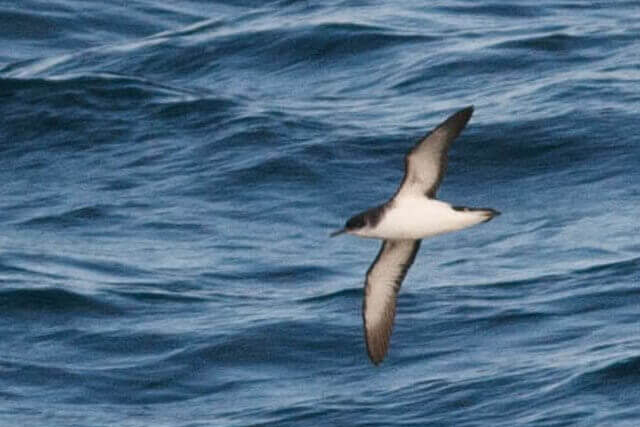
Conservationists have reported a remarkable resurgence in seabird populations on Lundy Island, with more nesting seabirds than at any time since the 1930s.
Located in the Bristol Channel, Lundy is now a haven for 25,000 Manx shearwaters, representing 95% of England’s breeding population, along with 1,335 puffins and over 150 pairs of storm petrels, a species that only colonised the island in 2014.
Despite recent threats such as avian flu and a decline in natural food sources like sand eels, the total seabird count on Lundy reached 40,000 this summer, marking a significant turnaround from the mere 7,351 in 2000.
The success story can be largely attributed to the eradication of rats from the island between 2002 and 2004. Rats, introduced through maritime activities over many decades, had been preying on eggs and chicks, particularly those of burrow-nesting shearwaters and puffins.
Despite opposition from some animal rights groups at the time, the rat removal initiative led by the RSPB, Natural England, the Landmark Trust, and the National Trust proved pivotal. Lundy was declared rat-free in 2006, facilitating the rebound of seabird populations.
Paul St Pierre, a conservation officer for the RSPB, said: “Partnership projects like this show just how much potential there is to restore species and landscapes on an incredible scale.
“If we can restore over 30,000 birds to one small island in the Bristol Channel, just imagine how much could be achieved if everyone came together to restore nature right across the UK.”
Biosecurity measures have since prevented the return of rats to Lundy via boats, and annual surveys have confirmed the dramatic recovery of seabird populations. The restoration of seabird colonies on Lundy exemplifies the positive impact of removing invasive predators on small islands.
Globally, seabird populations have declined by 70% since the 1950s, and many northern British seabird populations have faced significant setbacks in recent years. However, the southern summer populations, which forage in the waters off south Wales and southwest England, have shown resilience against this trend.
Derek Green, the general manager of Lundy, said: “We’re delighted by the dramatic increase of seabirds on Lundy in recent years. Conservation is at the heart of everything we do on the island and we look forward to continuing to nurture this very special place for future generations to enjoy.”
Lundy’s success story is a reminder of the island’s historical significance as a seabird haven, with estimates suggesting it was home to 80,000 seabirds in 1939. This resurgence underscores the importance of conservation efforts and the positive outcomes that can be achieved through targeted initiatives to protect vulnerable island ecosystems from invasive species.
——————————————————————————
At Natural World Fund, we are passionate about stopping the decline in our wildlife.
The decline in our wildlife is shocking and frightening. Without much more support, many of the animals we know and love will continue in their decline towards extinction.
When you help to restore a patch of degraded land through rewilding to forests, meadows, or wetlands, you have a massive impact on the biodiversity at a local level. You give animals a home and food that they otherwise would not have had, and it has a positive snowball effect on the food chain.
We are convinced that this is much better for the UK than growing lots of fast-growing coniferous trees, solely to remove carbon, that don’t actually help our animals to thrive.
This is why we stand for restoring nature in the UK through responsible rewilding. For us, it is the right thing to do. Let’s do what’s right for nature!
Donate today at https://naturalworldfund.com/ and join in the solution!

